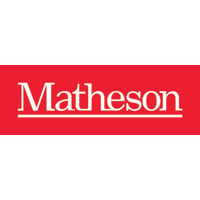

Chief Legal Officer | Elkstone



Eoin Fleck
Chief Legal Officer | Elkstone
What are the key projects that you have been involved in over the past 12 months?
Over the past 12 months, the legal function has worked closely across Elkstone’s venture capital and real estate platforms, supporting a wide range of legal and strategic initiatives for both internal teams and portfolio companies.
On the venture side, we’ve completed more than 20 early-stage equity investments through our EIIS Venture Fund, with 12 of those closed in the last year. These investments, primarily in seed and pre-seed companies, require close legal support not just on execution, but also on governance, founder alignment and longer-term scalability. Increasingly, our legal team plays an ongoing role in supporting these companies post-investment, helping them manage risk and set strong foundations for growth.
In real estate, we finalised a significant joint venture with a US-based private equity partner, establishing a long-term platform for Irish development opportunities in student accommodation. We were also appointed to the Land Development Agency’s Project Tosaigh II Framework, following a successful public procurement process. In parallel, we have managed acquisitions, disposals, and financings across residential, PBSA, office, and retail assets, as well as structuring credit facilities for several development projects.
We also incorporated two regulated investment vehicles, an ICAV and an Irish Investment Limited Partnership, both of which involved structuring across multiple jurisdictions, tax planning, and coordination with both local and international counsel.
Throughout, we’ve worked closely with institutional partners including ISIF, the LDA, and Enterprise Ireland, as well as private clients and family offices. Across all of these projects, our focus has been on ensuring legal is integrated early, responsive to commercial timelines and proactive in addressing obstacles to execution.
How do you approach managing legal aspects during periods of instability or crises, and how does your legal strategy align with the broader business strategy to ensure the organisation’s resilience?
Today, instability is a defining feature of day-to-day business, shaped by both internal and external forces – many of which lie beyond a company’s control. Legal’s strategic aim is to be both a stabilising force and a source of strategic direction, a place where issues are resolved and clarity is regained.
The core role of legal during periods of uncertainty is to protect the business from downside risk, while giving it the clarity and confidence to execute with conviction in high pressure moments. That starts with understanding the issue at hand, defining the outcome we want to achieve and shaping a response that is both legally sound and commercially practical.
Ultimately, a company’s resilience is built on operational excellence, strong systems, and effective governance. Legal plays a critical role in each of these areas. By staying close to the business, simplifying complexity and enabling well-informed decisions, our legal function becomes not just a safeguard, but a key contributor to long-term resilience.
What do you think are the most important attributes for a modern in-house counsel to possess?
The most effective in-house counsel combines sound judgment with the ability to navigate ambiguity without needing all the answers up front. What distinguishes them is a willingness to learn fast, think clearly under pressure, and stay focused on outcomes that work in practice, not just in theory.
They are commercially aware, trusted across the business, and valued not for always saying yes or no, but also for bringing context, clarity, and perspective. Often, the most valuable legal input is not about what to do, but knowing what not to do and having the judgment to hold that line when it matters most.
Temperament is equally important. In-house counsel are often called on in moments of urgency or uncertainty. Remaining calm, constructive, and measured in those situations helps steady the organisation and supports better decision-making when it counts.